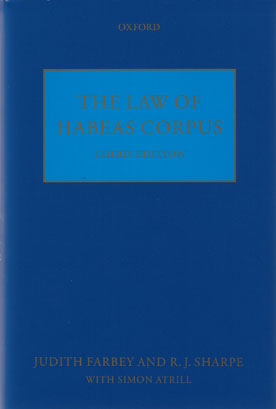We are now closed for the Christmas and New Year period, returning on Monday 5th January 2026. Orders placed during this time will be processed upon our return on 5th January.

Habeas corpus is the principal means under the common law for the protection of personal liberty. By this ancient writ, the court assumes control over the body of a prisoner so it can discharge him or her to freedom if no proper legal cause can be shown for detention.
Habeas corpus secures release from any form of custody, whether decreed by the highest powers of the state or the lowest gangland slave-trader. Its reach is as diverse as the forms of confinement. For just two examples beyond the prison wall, a patient wrongly detained for compulsory medical treatment can invoke its protection and it can even be deployed to determine the proper parental custody of a child.
This volume looks first at the historical development of the writ, tracing its growth in significance until its emergence as an item of central constitutional importance. Having established the traditional place of habeas corpus, the volume goes on to examine the limits of the remedy today. It describes the modern workings of the application for habeas corpus and assesses the scope, function, and role of the procedure. It explores the relationship between habeas corpus and fundamental rights.
The volume critically surveys the nature of judicial review on habeas corpus and investigates past, present, and potential future uses of the writ. It aims to provide a comprehensive statement of current English law, with added discussion of the position in other Commonwealth countries. The volume concludes with a guide to procedure and sample forms.